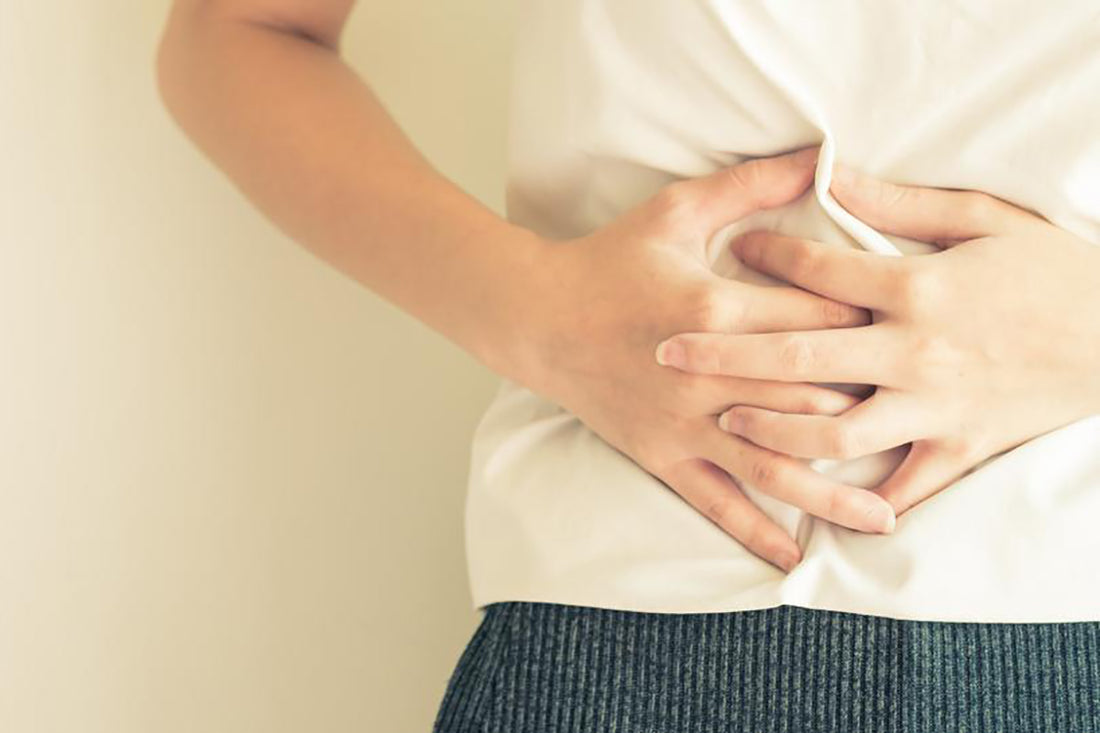
4 Ways to Decrease Gas and Bloating
Share
Gas and bloating may be natural byproducts of eating, but that doesn’t mean they’re not embarrassing. For some of us, our symptoms can be so bad that we stop eating some of the foods we love—but this isn’t the only way to solve the problem. There are many natural solutions for occasional gas and bloating. Since symptoms can come from a few different causes, we have four different ways to potentially ease that uncomfortable feeling.
1. Eat Slower

While most of us think of gas coming from undigested food, another way for it to enter our system is by swallowing it. By slowing down, you can potentially solve your gas problem before the food even reaches your stomach.
Learn more about solutions for occasional gas here.
2. Intermittent Fasting

Always consult your doctor before beginning a fasting routine, but this can be an effective strategy. By decreasing your overall food intake, you give your body a break from needing to digest and may ease your digestive discomfort.
Learn more about intermittent fasting here.
3. Take Digestive Enzymes

Many problems we experience with gas come from our bodies not properly digesting certain problem foods. By taking enzymes targeted at what our bodies have difficulty digesting, we can solve this problem naturally. While bodies have enzymes naturally, our modern diets can often benefit from supplementing with enzymes to best digest.
Read more about enzymes for gas and bloating here.
Beans and Vegetables: Alpha Galactosidase
Beans and vegetable contain complex carbohydrates that our bodies have difficulty breaking down. By taking supplements with alpha galactosidase, you can get the reinforcements you need to break down those complex carbs into easily digestible sugars.
See Enzymedica’s BeanAssist and VeggieGest supplements.
Lactose/Dairy: Lactase
For many of us, our gas and bloating problem comes from a lactose intolerance. Our ability to make lactase, the enzyme that breaks down lactose, decreases as we get older, so supplementation is a great option for many people.
See Enzymedica’s Lacto supplement.
Fat: Lipase
With how high-fat much of the foods we love and are easy to get can be, we experience more digestive discomfort from fat now than ever. Lipase can ease these symptoms.
See Enzymedica’s LypoGold supplement.
4. Ensure You Have the Right Stomach Acidity Level

While many people know that too much stomach acid can lead to digestive discomfort, too little can too. By taking antacids, our pH level lowers and the stomach cannot activate the enzyme pepsin well, making digestion and discomfort worse. Both pepsin supplementation and taking fewer antacids can help increase stomach acid and the enzyme pepsin.
Read more about low stomach acid’s effect on the body here.
See Enzymedica’s Betaine HCL with Pepsin and Mucosave supplement.

